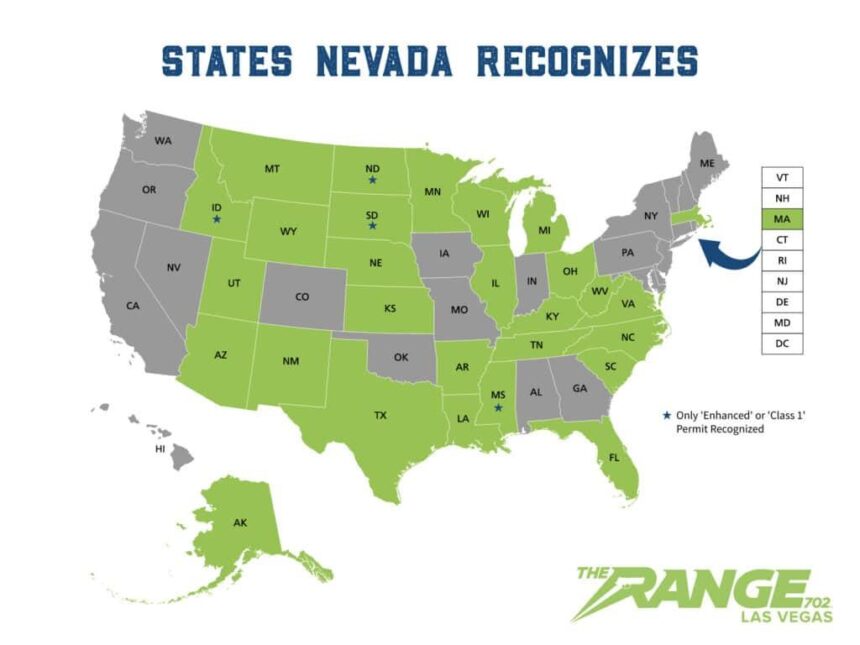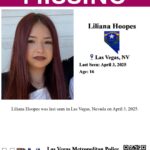Nevada’s New Legislation on Firearm Access During Mental Health Crises: A Comprehensive Overview
In a move to bolster community safety, Nevada lawmakers have introduced a bill focused on regulating gun ownership amid mental health emergencies. This legislation aims to implement temporary firearm restrictions for individuals identified as posing a risk to themselves or others during psychological crises. Supporters believe this initiative could avert tragic incidents, while critics express concerns about legal safeguards and practical enforcement. This bill represents a pivotal effort in Nevada’s ongoing endeavor to harmonize gun rights with mental health considerations and public protection.
Temporary Firearm Seizure: Key Features and Safeguards
The proposed law outlines procedures for the provisional confiscation of firearms from individuals undergoing a mental health crisis. This mechanism allows family members or authorities to request a court order to temporarily remove guns, thereby reducing the risk of harm. Firearms would be held securely until a formal judicial hearing determines whether continued restriction is justified. The legislation emphasizes maintaining due process and protecting individual liberties throughout the process.
Essential elements of this provision include:
- Judicial evaluation within 72 hours following the petition submission.
- Explicit definitions of mental health emergencies that warrant firearm removal.
- Guarantees for the affected individual’s rights, including access to legal representation and the opportunity to contest the order.
| Provision | Details | Duration |
|---|---|---|
| Emergency Firearm Seizure | Temporary removal during crisis situations | Up to 21 days |
| Judicial Review | Assessment of ongoing necessity | Within 72 hours |
| Legal Protections | Right to counsel and hearing requests | Continuous |
Understanding Extreme Risk Protection Orders: Criteria and Procedures
Under this bill, Extreme Risk Protection Orders (ERPOs) can be issued when credible evidence indicates an individual poses a serious threat due to a mental health crisis. Eligible petitioners—such as relatives, law enforcement officers, or licensed mental health practitioners—must provide convincing proof, which may include recent violent threats, aggressive behavior, or other signs of imminent danger. A judge then reviews the evidence to decide if firearm access should be restricted as a preventive measure.
The ERPO process is designed to be both prompt and thorough, balancing urgent safety concerns with individual rights. Temporary orders can be granted within 24 hours and remain effective until a full hearing, usually scheduled within two weeks. During this hearing, both parties can present evidence and arguments. If approved, the ERPO can last from several months up to a year, with the possibility of renewal after judicial reassessment.
- Eligible Petitioners: Family members, law enforcement, mental health professionals
- Required Evidence: Clear and convincing indication of immediate risk
- Timeline: Temporary order within 24 hours; hearing within 14 days
- Duration: Up to 12 months, renewable
| Step | Action | Timeframe |
|---|---|---|
| 1 | Filing of Petition | Anytime by authorized petitioner |
| 2 | Issuance of Temporary ERPO | Within 24 hours |
| 3 | Scheduling of Full Hearing | Within 14 days |
| 4 | Final ERPO Determination | After hearing |
Insights from Mental Health Specialists and Law Enforcement Officials
Mental health experts view the bill as a vital instrument for reducing firearm-related incidents during acute psychological distress. Dr. Amanda Chen, a psychiatrist specializing in crisis management, remarked, “Temporarily restricting access to weapons during critical moments can be life-saving.” Professionals agree that this approach complements broader suicide prevention efforts and helps curb impulsive violence linked to mental health episodes. However, they stress the importance of augmenting mental health resources alongside enforcement to provide comprehensive care.
Law enforcement representatives express guarded optimism about the legislation. Officer Miguel Ramirez of the Las Vegas Police Department noted, “Having clear legal authority to act in volatile situations involving mental health crises is invaluable.” Despite this, concerns persist regarding adequate training for officers and safeguarding civil liberties. The following summarizes the main viewpoints:
- Advantages: Potential reduction in suicides and violence, clearer legal framework for officers, alignment with prevention initiatives.
- Challenges: Need for expanded mental health services, risk of infringing on rights, necessity for specialized officer training.
- Recommendations: Cross-sector collaboration and continuous monitoring of the law’s impact.
| Group | Focus Area | Primary Concern |
|---|---|---|
| Mental Health Professionals | Suicide and violence prevention | Access to comprehensive treatment |
| Law Enforcement | Officer safety and legal clarity | Training adequacy and civil rights protection |
Strengthening Support Networks to Complement Firearm Restrictions
For firearm restrictions to be truly effective, enhancing mental health support systems is essential. This includes increasing funding to reduce wait times for counseling and expanding public education to destigmatize mental health care. Community outreach programs should focus on helping families recognize early warning signs and connect individuals to resources. Integrating mental health professionals into emergency response teams can facilitate compassionate, timely interventions before crises escalate.
Collaboration among healthcare providers, social services, and local agencies is key to a holistic approach. Establishing peer support groups and crisis intervention teams can provide immediate assistance and ongoing care. The table below outlines critical support strategies and their goals:
| Support Initiative | Purpose |
|---|---|
| Expanded Mental Health Counseling | Improve accessibility and reduce delays |
| Crisis Intervention Training | Equip first responders with necessary skills |
| Public Awareness Campaigns | Educate communities and reduce stigma |
| Peer Support Networks | Offer continuous emotional and social support |
Conclusion: Navigating the Intersection of Gun Rights and Mental Health
As national discussions on gun control intensify, Nevada’s proposed bill represents a meaningful attempt to address the delicate balance between firearm access and mental health safety. By empowering families and law enforcement with tools to intervene during mental health crises, the legislation strives to protect communities while respecting individual freedoms. The bill’s progress will be closely monitored by advocates, critics, and citizens alike, all seeking effective solutions to prevent violence and support those facing mental health challenges.










